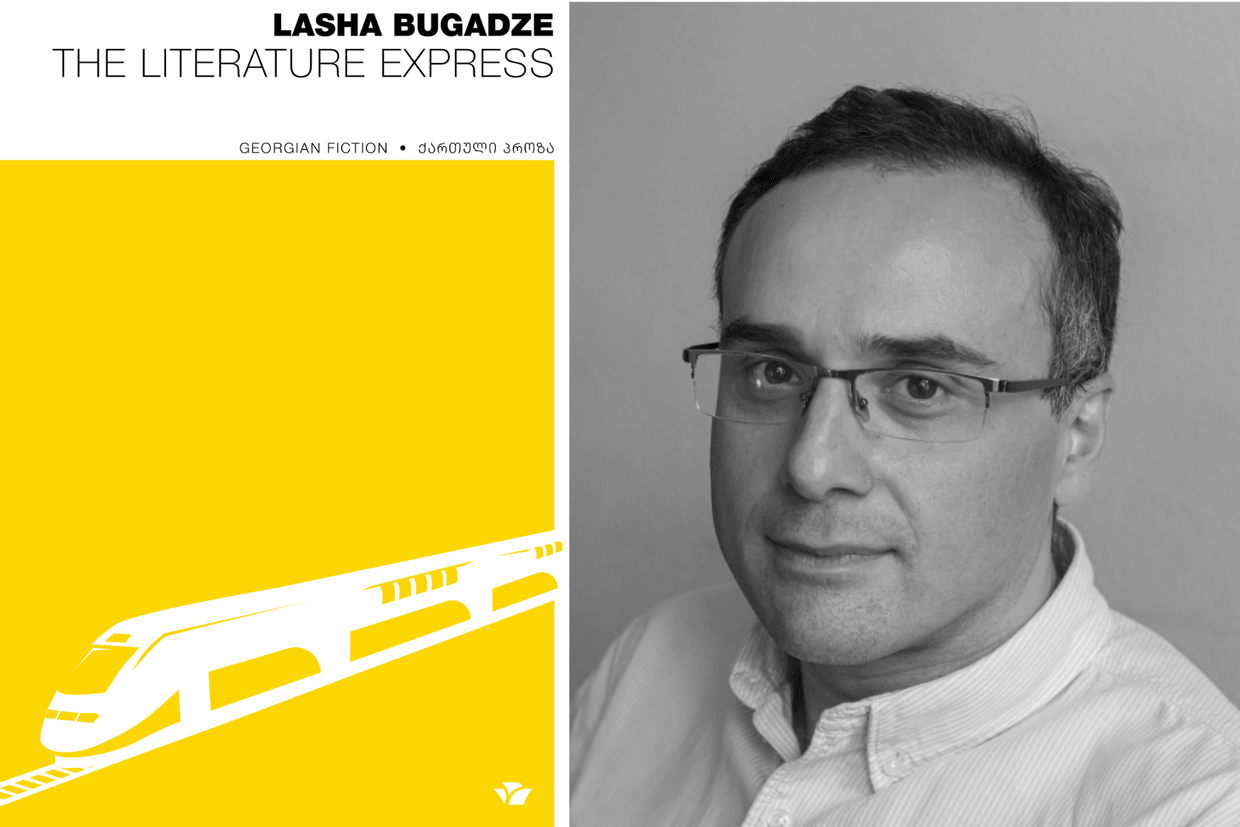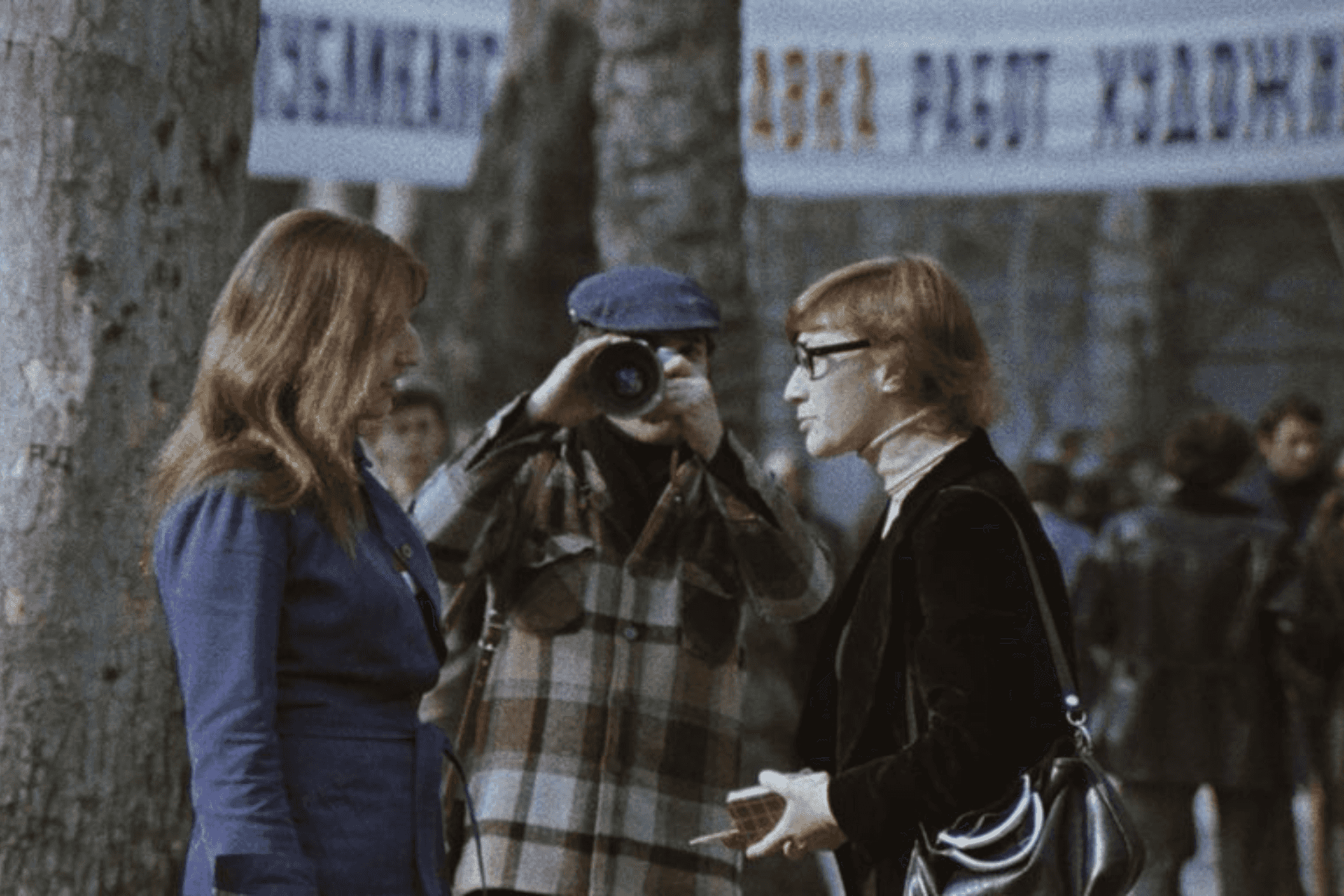
1.5/5★
Lasha Bugadze’s 2009 novel critiquing the art of literature, particularly the ‘Georgian author’, falls flat in its obsession with sex and sexism.
Bugadze’s fourth novel, The Literature Express, follows 28-year-old Zaza, an amateur Georgian author who becomes one of 100 writers on a month-long ‘Literary Express’ train through Europe.
Set right after the August 2008 War, and a break-up with his longtime partner Elene due to cheating, Zaza sees the journey as an opportunity to write a diary novel, which becomes the main text itself. Throughout the 300-page novel, Zaza reflects on the actions of his fellow Georgian, the more illustrious poet Zviad, as well as the other authors on the train, each representing various stereotypes from their countries of origin. He also contemplates the state of literature as a whole, Bugadze using such reflections as a way to satirise the entire industry.
In this sense, the book works moderately well. Bugadze clearly enjoys poking fun at the establishment, calling out the methods by which literature is popularised.
‘How can a writer predict which region is going to be fashionable, say, next year? Is there a war planned anywhere I should know about? Are they going to behead a hostage somewhere?
There should be a public announcement: in 2020 we are going to be interested in the parliamentary elections of Kyrgyzstan, while 2030 will be devoted to novels featuring the UN…’
Georgian literature is of course the most satirised — Bugadze appears to have rather poor thoughts on both the state of Georgian writing and its readers. Given the novel’s setting, the August 2008 War of course becomes a focal point for Zaza, who sees it as his way to success, noting towards the end of the novel that ‘a smart writer could sell the war quite profitably’.
Yet while some fun can be had here, the rest of the novel, particularly Bugadze’s poor portrayal of women, is depressingly mediocre.
The so-called ‘heart’ of the novel is an alleged ‘romance’ between Zaza and Helena, a Greek literary critic married to a Polish author partaking in the Literary Express. Effectively sex on legs, Helena seems to taunt Zaza at every turn, invading his mind with sexual fantasies giving him writer’s block towards anything else. There is little actual romance — rather more the musings of a randy teenager.
And it is not just Zaza who appears infantile in his needs and desires. Almost all of the authors, the majority of which appear to be male, spend the trip seeking out sex, whether exploring the various prostitutes at each stop or having May-December flings with other writers on the train. Notably, barely any space is given to women’s desires amongst all of this — Helena appears to just have sex with Zaza in a train bathroom to get him to shut up about it all towards the end of the trip. Only one other female author on the journey is given a few pages of a diary entry (such entries are interspersed throughout the novel, in both their native tongue and an English translation) to discuss her feelings after connecting with another male author on the train.
Additionally, while Zaza and the other authors seem to have high praise for women’s sexuality and looks, every other mention is denigration.
‘God knows how women prose-writers scare me! Every single one I’ve met looks like a transvestite. I much prefer women poets if it comes to a choice’, Zaza remarks at one point.
While it appears Bugadze wished to push the norms and have fun, the result is not a witty literary satire, but a degrading take on women. For a novel with so much potential, it falls short of achieving any of its aims — humour, romance, satire — instead simply just a slog of raunchy stream of consciousness that does little to endear either the novel or its author.
Book details: The Literature Express (2009), translated into English by Maya Kiasashvili in 2017 for Sulakauri Publishing. Buy it from the publisher here.









